Top 7 Gabon Culture, Customs, and Etiquette
Gabon, a West African republic, is a culturally diverse country with dozens of ethnic groups, each with its own traditions. Mask making, music, and dance are ... read more...all important aspects of Gabonese culture for these groups, many of which interact and share cultural practices. Gabonese cultural identity is defined by the celebration of unique religious beliefs and practices. Let's take a look at the list of Gabon culture, customs, and etiquette.
-
Only a small percentage of marriages in Gabon are legal. To legalize a marriage, it must be done at the mayor's office in a city, which is rare. Women prefer men who can provide for them, whereas men prefer women who will bear children and keep their homes.
The family frequently has a significant influence on the choice of a marriage partner in Gabon. Girls are occasionally promised at a young age, but the wedding does not take place until after puberty. When the couple gets engaged and marries, the groom is expected to give gifts to the bride's family known as dot. To avoid marrying relatives, Gabonese generally marry within their ethnic group but mostly outside of their village.
Before marriage, a woman may be encouraged to have one or two children to demonstrate her fertility; these children are frequently raised by the woman's mother. However, in a marriage, the children are the fathers. If the couple divorces, the husband takes custody of the children. The wife would have nothing if she did not have premarital children. Divorce is rare, but not unheard of. Marriages can sometimes be business transactions, though some couples marry for love.
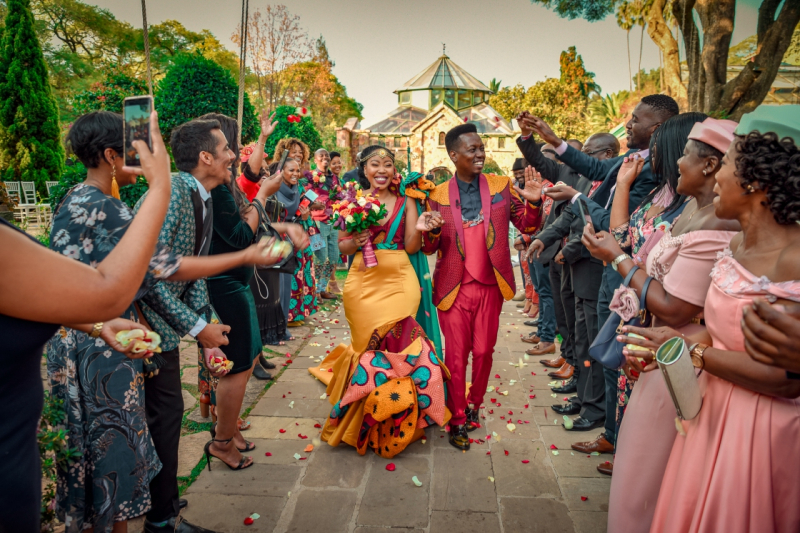
danddclothing.com 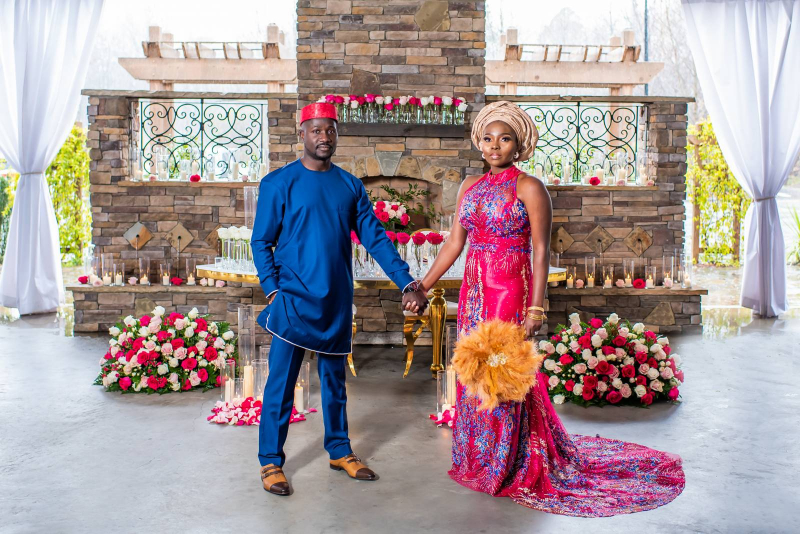
danddclothing.com -
The Gabonese show their hospitality to visitors by serving generous portions of their best meals. Guests of distinction are presented with a variety of dishes from which to choose. Furthermore, the amount of protein (meat or fish) that a Gabonese family can serve reflects wealth and prestige. When entertaining distinguished guests, the Gabonese will serve as much meat and fish as possible.
When the Gabonese invite guests to their home for dinner, it is the host's responsibility to provide for the guests and demonstrate his or her generosity. As a result, guests are not expected to bring a gift. Many Gabonese, on the other hand, are aware of the Western custom of bringing a small gift and would gratefully accept any token offered. Guests invited to a village ceremony, on the other hand, will be expected to participate in the ceremony, which may include making gifts. Furthermore, it is considered impolite by the Gabonese if guests do not reciprocate by inviting their host to dine with them at a later date.
When they are not eating at home, Gabonese men frequent the many local cafes and restaurants in Libreville that serve inexpensive Gabonese cuisine. Restaurants in Libreville cater to European expatriate populations and serve Western cuisine. French cuisine is popular in Libreville and is widely available. Pizza has gained popularity in recent years, and there are now pizza restaurants. Another popular option is grilled fish.
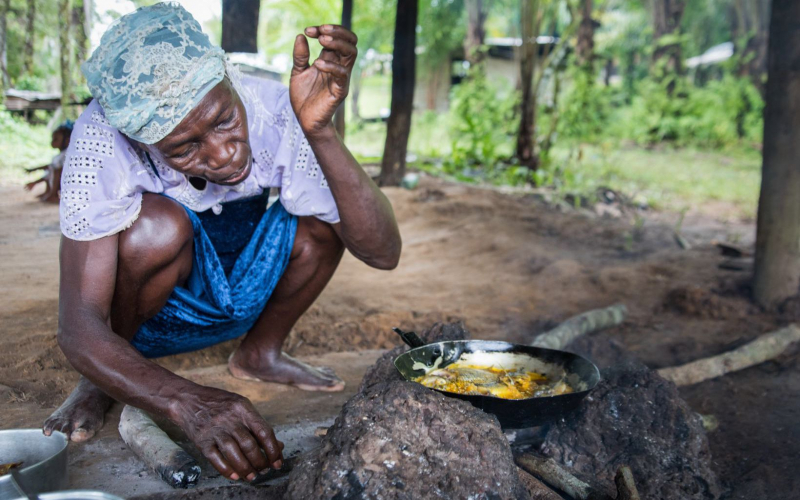
naturesgarden.com 
thedailymeal.com -
Even if they meet several times a day, the Gabonese shake hands and smile. Friends in the city may hug and kiss each other on the cheek. When greeting, women in rural areas may clasp their forearms. In rural areas, older men frequently shake another person's hand with both hands. In small groups, it is customary to greet each person individually. In larger groups, one can greet everyone by raising both hands and saying Bonjour tout le monde ("Hello, everyone"). People of the same gender, particularly men, frequently hold hands while talking or walking. It is inappropriate for members of the opposite sex to hold hands, especially in rural areas.
In urban areas, visiting is common after work or on weekends, and in rural areas, it can happen at any time. The majority of rural socializing occurs on Sundays following morning church services. Even if a guest is not hungry, it is necessary to sample some of the food offered in order to avoid offending others. It is impolite to refuse passing friends an invitation for a drink or a meal in the countryside. Rural women socialize in the kitchen, where they spend the majority of their time. Kitchens are usually separate from the living quarters, and open cooking fires are common. Corps de garde are open-air structures where men work and socialize.

paulkagame.com 
flickr.com -
Gabon is a former French African colony on Central Africa's western coast. A Boubou, a flowing top that can be floor-length or knee-length, is a traditional Gabonese clothing item. Celebrations frequently necessitate elaborate Boubous. Boubous are worn by men with loose-fitting trousers underneath, while pagnes are worn by women as a skirt. To create a contrasting striped pattern, both fabric sections are indigo dyed, one light blue and the other dark. Geometric hand-sewn embroidery in red, white, brown, and black surrounds the squared neckhole.
Gabonese people nowadays dress in Western-style clothing. The casual outfit is filled with vibrant African colors. People in Gabon always wear light, loose clothing because it is hot and humid. Women wear modern dresses and skirts with intricate embroidery. Men typically dress in jeans and T-shirts. The Gabonese love to dress up so bring your gladrags if you intend to hang out at the clubs and smarter restaurants in Libreville and Port-Gent
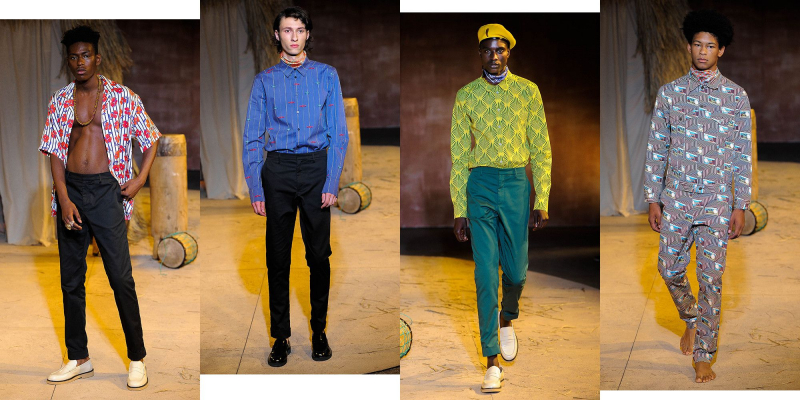
esquire.com 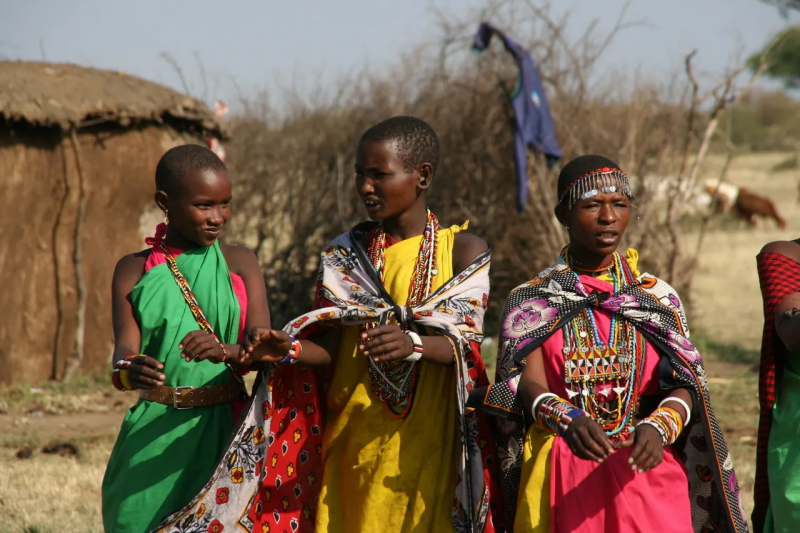
nae2s.blogspot.com -
Gabonese families are large, with women having an average of five children. Matrilineal families exist in some ethnic groups; immediate family members include not only parents and siblings, but also the mother's parents and siblings. The government actively encourages births because it believes the population is simply too small. As a result of this policy, as well as a generally permissive cultural attitude toward sex, many young Gabonese women become pregnant without having found a husband.
Families stay together. When a couple marries, they relocate to the husband's village, which houses his extended family, which consists of brothers, sisters, parents, aunts, uncles, grandparents, children, nieces, and nephews. It is common for families to live with their parents and extended family. There is always room for one more, and everyone is welcome. Polygyny (taking more than one wife) is legal in Gabon, but couples entering state-sanctioned marriage contracts must register as either "polygamous" or "monogamous."
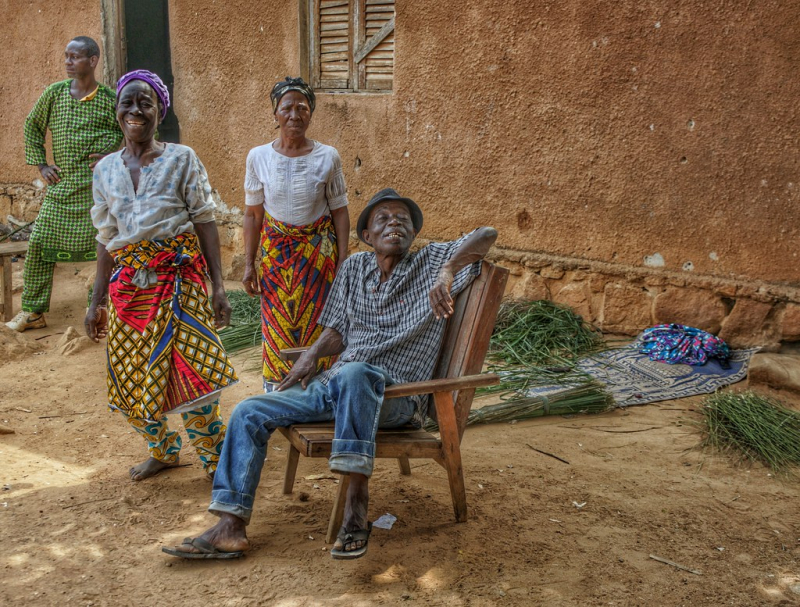
paulkagame.com 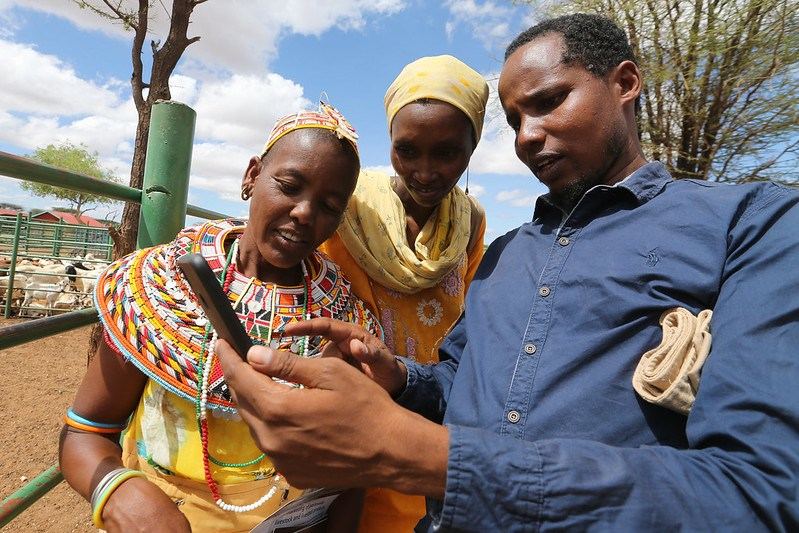
worldatlas.com -
Gabon has a wide range of belief systems. Around 75% of Gabonese are Roman Catholics, 20% are Protestants, less than 1% are Muslims, and the remainder are animists. In reality, many Gabonese believe in animism while also practicing Christianity or Islam. Animism, a set of beliefs held by tribal and pre-industrial people all over the world for thousands of years, does not generally identify a human-like god concerned with Earthly activities. Animist gods are amorphous and abstract, and inanimate objects can have spiritual power.
There are several rituals and holy places. Ngangas lead the Bwiti ceremonies, which are held to honor the ancestors (medicine men). These ceremonies are held in special wooden temples, and participants dress in bright costumes, paint their faces white, remove their shoes, and cover their heads.
Witchcraft is another form of animism that exists in Gabon; belief in evil spirits and sorcerers who can summon them is widespread. Death, according to traditionalists, is not a natural phenomenon and can only be explained as the work of a malevolent.

worldatlas.com 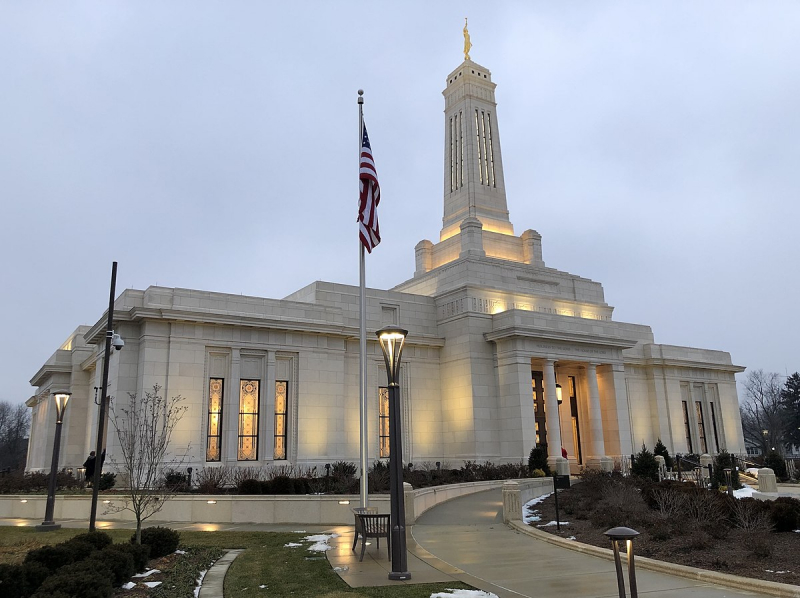
wikipedia.org -
Gabon is best known for its national parks, but be aware that tipping is expected when visiting. Tipping in Gabon can be perplexing because there is no real standard practice. Service charges may be included in prices, and some may expect a tip while others will not.
- Tipping taxi drivers is not expected in Gabon, but if you had a pleasant ride, you should round up.
- Tipping is not customary or expected in hotels. A small token is a nice gesture for a staff member who goes above and beyond. As an example, a bellboy bringing your luggage up to your room.
- Service charge is not included in Gabon restaurants. You can tip anywhere between 5 and 10%, depending on the service and quality of the restaurant. In most high-end restaurants, a tip is expected. While no tip is expected at a basic eatery.
- Tipping bartenders in Gabon bars is uncommon. If you don't get table service, don't expect to tip.
- In other places, if you take an organized tour in Gabon, you should expect to tip the driver and guide 5-10% each. This is entirely dependent on the quality of the guides. But keep in mind not to be too flashy with your money and valuables.
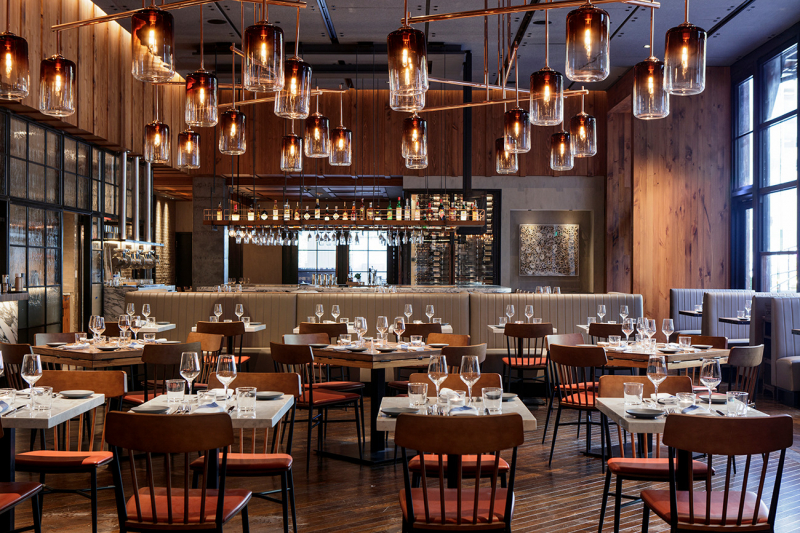
charlotte.com 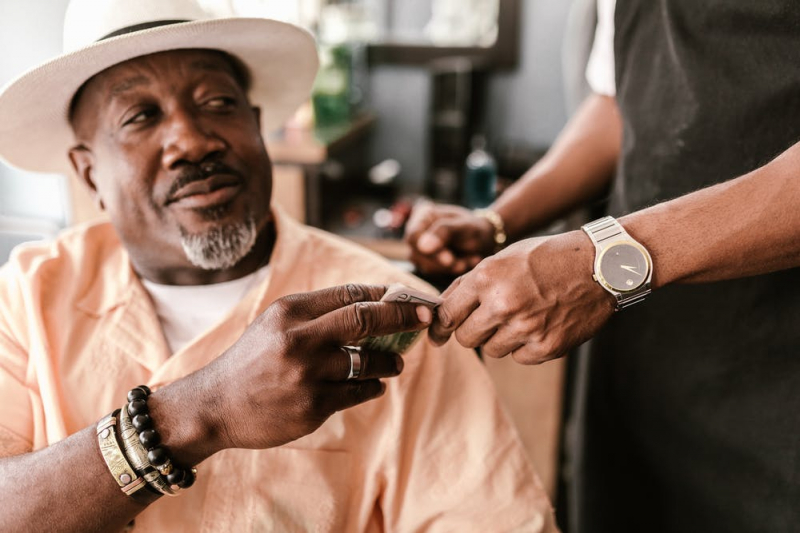
blog.gumtree.co.za





























